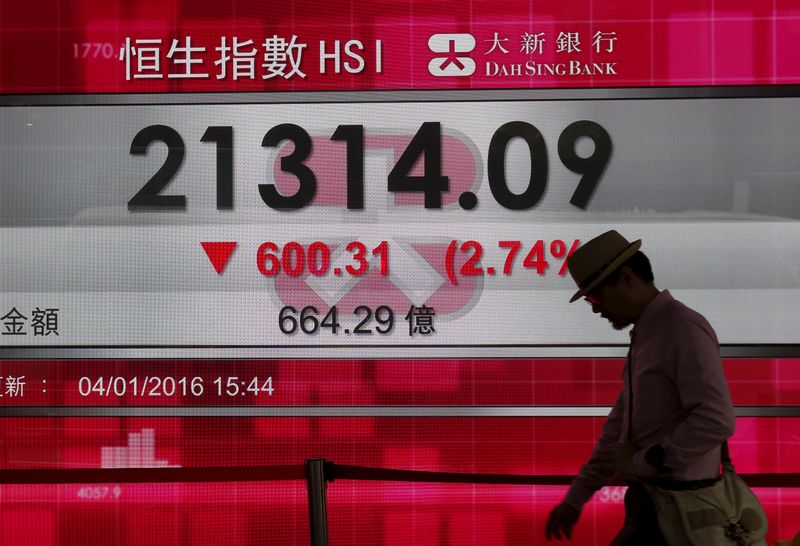Nvidia among investors in xAI’s $20 bln capital raise- Bloomberg
Investing.com-- Most Asian stocks retreated on Tuesday as the prospect of higher U.S. rates weighed on the technology sector, while persistent concerns over a Chinese economic slowdown also kept investors wary of regional markets.
Regional stocks were still reeling from hawkish signals from the Federal Reserve, after the bank said that interest rates could potentially increase further this year, and will remain higher for longer.
Overnight comments from Minneapolis Fed President Neel Kashkari furthered these fears. Kashkari said that he saw one more rate hike this year, and that rates needed to remain higher to cool high inflation and a tight labor market.
His comments triggered steep declines in Asian technology stocks, with South Korea’s KOSPI losing 0.9% on losses in heavyweight chipmakers.
The Taiwan Weighted index shed 0.2%, while losses in major technology stocks also pulled Japan’s Nikkei 225 index 0.7% lower.
Property market jitters, GDP downgrades hit Chinese stocks
China’s Shanghai Shenzhen CSI 300 and Shanghai Composite indexes fell about 0.2% and 0.1%, respectively, while Hong Kong’s Hang Seng index lost 0.7%. All three indexes were nursing steep losses in recent sessions, amid concerns over a greater meltdown in China’s property market.
Embattled developer China Evergrande Group (HK:3333) sank 5% on Tuesday, extending losses after it said it will be unable to issue new debt due to an ongoing government investigation into one of its units.
This ramped up concerns over more scrutiny towards China’s massive property market, which is already suffering from a three-year cash crunch.
Several major investment banks and brokerages downgraded their outlook for China’s annual gross domestic product in recent weeks, amid growing pessimism over an economic recovery in the country.
S&P Global expects the Chinese economy to grow 4.8% this year- lower than government forecasts of 5%.
Focus this week is also on Chinese purchasing managers’ index data for September, which is expected to show persistent weakness in business activity.
Concerns over China saw Australia’s ASX 200 lose 0.5%. Australian consumer inflation data for August is due later this week.
Broader Asian markets also retreated, tracking a weak lead-in from Wall Street. Rising Treasury yields, after the Fed’s hawkish comments, presented a weak outlook for stocks, as returns on debt and less risky investments increased.
This trade battered Asian markets over the past year, and is likely to apply pressure in the coming year, given that U.S. rates are set to remain close to 20-year peaks.
Futures for India’s Nifty 50 index pointed to a weak open for local stocks, as worsening sentiment saw investors collect recent profits. The Nifty had surged to record highs last week, although it fell sharply from the highs in recent sessions.
